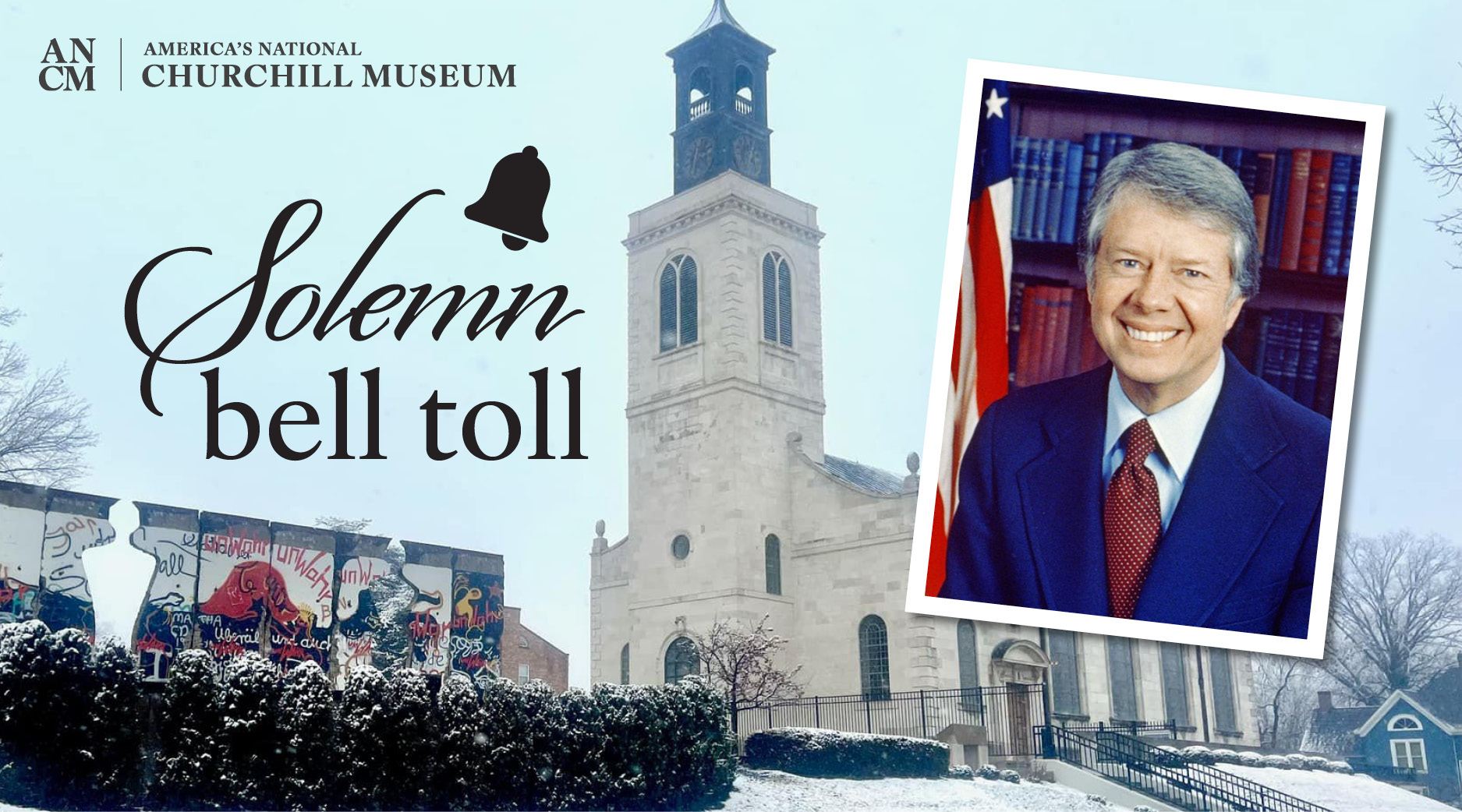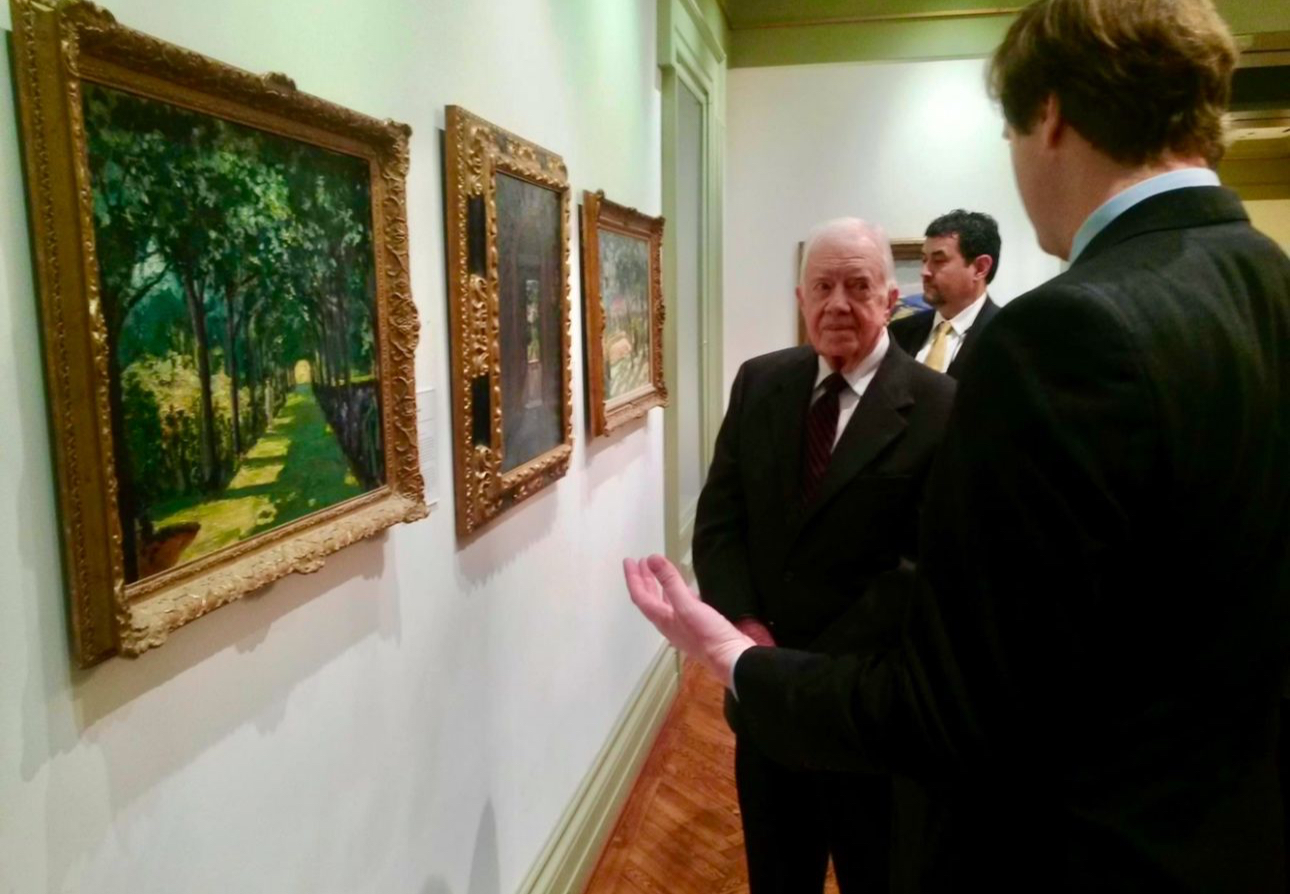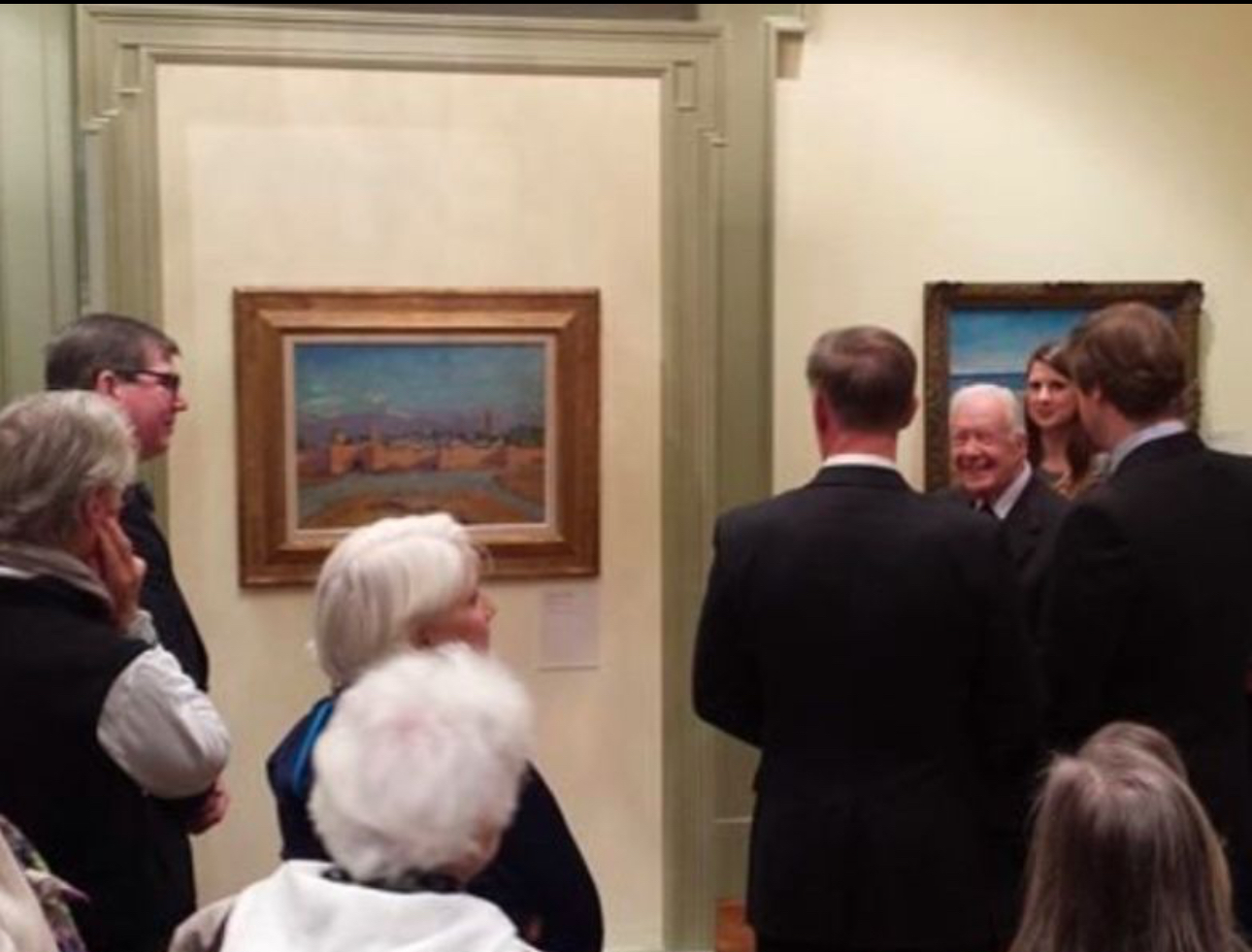

On Thursday, January 9 at 8:55 CST, America’s National Churchill Museum at Westminster College tolled the bells of St. Mary the Virgin, Aldermanbury 39 times to mark the National Day of Mourning honoring former President James Earl “Jimmy” Carter, Jr. and his legacy.


Born on October 1, 1924, in Plains, Georgia, Jimmy Carter entered the United States Naval Academy during the Second World War before serving with distinction on the USS Wyoming immediately following the war. After a period of surface ship duty, Carter volunteered to serve aboard the submarine USS K-1 (SSK-1) and later worked on the nation’s program to create nuclear-powered submarines in the early 1950s.
Photos: President Carter admiring and exhibition of paintings by Winston Churchill at the Millennium Gate Museum in Atlanta in 2014.
Carter served as a state legislator in his home state of Georgia, eventually becoming governor in 1971. In the 1976 presidential election, Carter defeated Gerald Ford to become the 39th President of the United States. President Carter achieved a diplomatic breakthrough between Egypt and Israel with the Camp David agreement and negotiated the SALT II nuclear-arms treaty with the Soviet Union.
After he left office in 1981, Carter spent over four decades as a public servant and advocate for transparent, representative government. In 1982, he founded the Carter Center with the mission to prevent conflicts between nations and mediate existing ones, while standing up for the preservation of human rights and fair and free elections.
For his international efforts, Carter was awarded the Nobel Peace Prize in 2002.
Carter was widely recognized and revered for his Christian faith, compassion, his volunteer work with Habitat for Humanity, and his loving 77-year marriage to his wife, Rosalynn Carter.
America’s National Churchill Museum and Westminster College express gratitude for President Carter’s decades of public service and send condolences to the Carter family.
“Leave the past to history especially as I propose to write that history myself.”